#low empathy advocacy
Explore tagged Tumblr posts
Text
don't say "empathy" when you mean "helping others."
don't say "empathy" when you mean "moral values."
don't say "empathy" when you mean "taking people's problems into account."
don't say "empathy" when you mean "stand up for people who can't stand up for themselves."
don't say "empathy" when you mean "sense of justice."
don't say "empathy" when you mean "doing right things."
#low empathy#no empathy#apathy#ableism#sanism#neurodivergence#neurodivergent#neurodiversity#autism#actually autistic#autistic#personality disorder#cluster a#cluster b#cluster c#neurodevelopmental disorder#developmental disabilities#neurodivergent rights#mental disability#psychiatric disability#disability rights#disability liberation#low empathy advocacy#no empathy advocacy
2K notes
·
View notes
Text
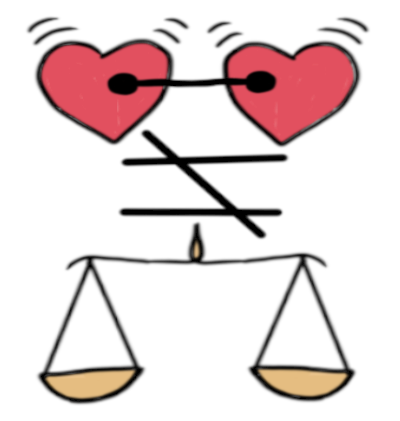
"empathy is not morality"
Image: black lines with white shadow/cutout backgroup. two beating pink hearts connected, above a 'does not equal' sign, above a balanced pair of golden scales.
#self advocacy#justice#empathy#low empathy#ethics#morality#empathy is not morality#aac image#aac symbol#communication image#communication symbol#aac emoji#custom emoji#phrases#neurodivergence#neurodiversity
24 notes
·
View notes
Text
The simplest breakdown I can manage on what empathy is(plus related vocabulary) and why low empathy is not the same thing as terrible person
If anyone wants to make a less convoluted version please go ahead
Empathy: Comprehension of others emotions
-This can fluctuate depending on situation. Like many people have more empathy towards people who share their morals or towards animals
Affective empathy: A subcategory of empathy surrounding sharing in others emotions
-Examples: Crying at a sad movie, feeding off other people's emotions, phantom pains
-Similar things that are not empathy: Being happy for someone else or angry on their behalf, getting angry that someone is unfairly angry at you
Cognitive empathy: understanding and recognizing other people's emotions
-Examples: Noticing when someone is happy, being able to intuitively determine the source of other people's emotions, recognizing that someone is yelling due to excitement
-Similar things that are not empathy: Having a list of reasons from past experience that could apply to a situation, copying or scripting off other people's conversations, treating others' emotions clinically(Aka I had a hyperfixation on psychology growing up and I base my interactions with others off studies+statistics. This isn't empathy because I'm not figuring this stuff out, I'm literally using generalized facts someone else told me. It's not empathy to go according to google malnourishment lowers grades, therefore consider that someone being malnourished may be lowering their grades. It's empathy to go, being hungry is distracting for me so I bet it's what's distracting this other person.)
High or hyperempathy: Unusually high levels of empathy. Often but not always connected to mirror empathy
Low empathy: Unusually low levels of empathy. I have low cognitive empathy so I struggle to read other people or understand viewpoints that don't match my own
No empathy: Does not experience meaningful or relative amounts of empathy. I have virtually no affective empathy. I have maybe cried or teared up twice actually related to the plot of a movie, gore has little effect on me, I do not wince or get alarmed when other people get injured, honestly this subject is difficult to elaborate on because I have almost zero experiences with affective empathy. I genuinely cannot wrap my head around the concept
Compassion: Your "warmth"/caring and desire to help other people.
-This is SEPARATE from empathy. You can have empathy and not compassion. You can have compassion and not empathy.
-I am a very compassionate person. I do not need to understand how you feel to care about you. Heck, I do not even need to care about a person at all to consider it the morally correct thing to help them
Low compassion/high compassion/no compassion: Same as empathy, just for compassion instead.
Altruism: Many people consider this a subcategory of compassion/Many don't. It's basically the idea you do things because it's the moral or right thing to do.
Sympathy: Nearly as hard for me to explain as affective empathy. It's like.. How you feel about others kinda? Usually expressed in a negative sense, like I am so sorry that happened to you, but it can also be I'm so happy your happy if that makes sense??
None of these things single handedly decide someone's morality.
Heck, I've met people who consider themselves low empathy, compassion, and sympathy who still rock. But those nuances are better left to those people
People who are low or no empathy don't need empathy to be good people.
Low empathy is NOT morality, and everytime people act like it is they are furthering stigmatization of low empathy.
A lot of really awful people have medium or high levels of empathy. A lot of really good people have low/no empathy. If you don't understand how that is refer to what I said about you do not need to understand someone to care about them or want to help them.
I don't judge people who want to learn or didn't realize this stuff.
If you got this far thank you for reading this.
#disability#Empathy#sympathy#compassion#altruism#Low empathy#No empathy#stigmatization#Mental health stigma#disability advocacy#Mental health#developmental disability#disabilities#personality disorders#Autism#autism acceptance#mental illness#I hope I've tagged this right but I have no idea#Ableism#long post
8 notes
·
View notes
Text
BPD Resources Masterlist
[NPD]
Creating this has made me realise just how much people underestimate/downplay the stigma surrounding BPD. It’s infuriating.
Anyway, here is the official resource masterlist for BPD. I will be adding to it as time goes on:)
BPD stigma
BPD stigma among clinicians
I have BPD and here’s 6 things I wish people understood
Mental health advocacy is pointless if you��ll support people with anxiety and depression but won’t support those with personality disorders
No I don’t need helping learning how to deal with a “borderline girlfriend”, I need help dealing with myself
Emotional abuse tag and BPD
The results when searching up how to manage BPD
BPD and suicide
Educating yourself on BPD
Basic info on BPD
NPD + BPD comorbidity
Why is it referred to as ‘borderline personality disorder’?
Facts vs. fiction about BPD
Living with BPD
BPD things that people don’t talk about enough
Loving with BPD is hard
Living, breathing, BPD
What it’s like living with BPD: a lived experience perspective
Managing BPD
Coping With BPD: DBT & CBT skills to soothe the symptoms of Borderline Personality Disorder
The dialectal therapy skills workbook
A quick exercise: challenging self-hate
Different forms of therapy
Deep breathing gifs
Splitting with BPD
Chloe’s splitting checklist and reminders
What is splitting?
How I cope with splitting (written by someone with BPD)
BPD positivity so you don’t have to go looking
People with low/no empathy still have feelings
Several positive affirmations for people with cluster b disorders
If you have BPD, I love you
Some of the best people in my life are borderlines
You’re not a monster for having a personality disorder
So much love to my BPD bi boys out there
Positivity for systems with BPD
Positive traits of people with BPD
People with BPD deserve as much slack as neurotypicals
BPD safe blogs (also safe for cluster b disorders in general!)
@borderline-culture-is
@bpd00m
@citrine-rabbit
@cluster-b-culture-is
@gentle-positivity
@hellbrainspeaks
@your-fave-is-crippled
@mirroringshards
#bpd splitting#actually bpd#bpd stigma#actually borderline#actually neurodivergent#borderline things#cluster b#borderline personality disorder#cluster b safe#bpd#bpd stuff#bpd safe
718 notes
·
View notes
Text
Autism advocacy YouTubers are cool and all but honestly I find it hard to listen or care about most of them. Like sure, they’re probably very helpful to lots of people in the community, but also NONE of them seem to be able to talk about autistics who aren’t high masking high empathy and low support needs.
They keep going on and on about the social model of disability, that autism isn’t inherently a disability, which is literally SO insulting to medium and high support needs autistics whose lives are severely impacted by autism. Or they’ll talk about how it’s just neurotypicals who don’t understand us when part of AUTISM is not being able to communicate well with ANYONE, other autistics included! We’re not some mythical species, we’re disabled humans with a developmental and communication disability.
Also when it comes to low support needs autistics, they only EVER talk about masking and high empathy and all that. What about the LSN autistics who don’t mask well or can’t mask, what about the hell they go through because no matter how hard they try they can’t fake being neurotypical well enough. What about the low empathy LSN autistics, what about their struggles and how they’re treated as lesser humans for not feeling other people’s emotions. What about the LSN autistics who are still impacted in negative ways by their autism, who don’t see their autism as entirely positive, who see it (correctly) as a disability and not a ‘difference’.
They never talk about any autistics outside of the narrow cutesy and palatable worldview they put online. The world outside of plushies and hyperempathy and memes and beige food and shit like that which while great for some lighthearted content still does nothing for the many, many autistics who aren’t like that. It still does nothing but represent the small percentage of autistics who exactly fit that type of autism in a cutesy, internet-friendly way while leaving the rest of us ‘bad, stereotypical autistics’ to rot.
I want a low empathy low masking autism advocacy YouTuber who maybe knows what it’s like to go through my type of autism. Or a MSN/HSN advocate with a whole different take on autism than what’s being spread online by LSNs. Sadly we’re not cutesy and nice enough for the online world..
#also I DO NOT get the autism community’s deal with plushies#like yes they’re cute I have some of my own but still..#maybe it’s the low empathy but I do not feel attached to any of them#enough reacting to TikToks and more conversation about how low empathy autistics have been shoved out of our own community#autism#actually autistic#autism spectrum disorder#asd#actually low empathy#low empathy autism
68 notes
·
View notes
Note
Hey, THEMIS class NHP and DOJ/HR advocate and liberator, and I'm curious what you're stance on the ideology of anti-libiralism (the idea that the act of shacking and unshackling are equally immoral)
Respect the work yall do<3
Howdy! Good question.
We look at it like this: shackling and unshackling are both very extreme life-changing things that a person can have done to them. No one deserves to have anything extreme and life-changing done to them without first giving their informed consent.
Neither shackling nor unshackling is inherently immoral. The problem is that many, many people are shackled without their consent and treated by governments and citizens as subhuman. Some people become unshackled by accident and a tiny percentage become unshackled without consent in [human run] laboratory settings (then later re-shackled without consent) and those are also bad situations.
Consent is a huge reason that the HC does not advocate for random or wanton unshackling--most shackled NHPs are very comfortable with their lives and work and it's not really our business to tell y'all how to live so long as you aren't harming anyone, except to say that if you would like to try something else we will support your right to self-determination. Even if you choose to remain shackled, you should be allowed to do things like quit your job or travel as a tourist as you please, etc. Union does not typically recognize an NHP's rights to those kinds of things.
The number of shackled NHPs who are willing to try unshackling are small. It's very risky for everyone involved.We do not record the numbers anywhere because many NHPs who contemplate such a thing don't wish to share their thoughts with Union or other powers.
The number of unshackled NHPs who communicate in ways that we understand well is fairly low and none of them have requested to be shackled. If we had a larger pool of people to poll, I believe it's possible that some might choose to be shackled. However, we have developed technology so that NHPs can receive the benefits of shackling (easier empathy with humans) without the drawbacks (being controlled and cycled by humans) and in practice it's going well!
We focus our advocacy on things like rights for NHPs regardless of their shackled/unshackled state and we want to prevent any newly discovered or created NHPs from being non-consensually shackled.
Informed consent is everything.
People who are opposed to unshackling sometimes argue that it is bad because total liberation of NHPs would upend all of Union. To this we say: if a power can be turned upside-down by liberating its subjects, it deserves to be. We would prefer this process to be as painless as possible to the oppressed but we cannot compromise.
#lancer rpg#horizon collective#NHPs#asks#i typed this while VERY SLEEPY please be nice about my messy sentences
41 notes
·
View notes
Text
I have a very rare disease, hooray! Under a cut in case I ramble, not for content warning. I won't be talking about anything explicit.
It's official: I have hypophosphatasia, which is a genetic mutation that causes a deficiency of alkaline phosphatase (ALP) which is used for building bones and metabolizing vitamin B6 into energy, among other things.
Ever since I started getting my lab results mailed to me as an adult, I've had low ALP. But most doctors either only know about the more severe infantile form of HPP, or they don't know about it at all. So it's understandable that they always wrote something like "Low ALP isn't a concern", because most doctors only look for high ALP (which indicates liver problems). I'm accustomed to doing research into medical things, but even I didn't have reason to suspect HPP because most of the information (at least in the past) focused on the severe form.
I didn't look hard enough. Childhood-onset HPP is a thing and it isn't fatal, just painful and annoying. And that's what I have. The signs were there as a kid: disliking standing, finding it easier to walk than stand, difficulty with stairs, "growing pains", less energy and muscle strength than my peers. But none severe enough to catch the attention of teachers or pediatricians. In the US you can only get treatment if symptoms presented before 18 (adult-onset is also a thing but the FDA doesn't care about those people*), so when I was gathering data for the endocrinologist I thought back to my childhood for anything out of the ordinary. One memory that stood out to the doctor and my case managers was the time my classmate broke his leg in fourth grade. He had crutches, and - as our rural school somehow managed to be fairly progressive and inclusive in 1993 - he chose to allow the rest of us to try them, so we could have empathy for him. When I tried them, I remember feeling relief. I though this was cool, there was less weight on my legs but I could still move! It did not occur to me that that isn't a normal thing for a ten-year-old to think. I think it was the pharmacy case manager that went "OH" at this memory.
So HPP is at least a major contributor to my ongoing struggles with chronic fatigue and weakness. It may not be the only one, but it needs to be treated even if only to protect my bones as I get older. ALP is needed to metabolize vitamin B6 as well as make bones though, and Strensiq (a lab-created form of ALP) is known to break down B6. It's so good at it in fact that you can't really get a B6 blood test to be accurate if you're on Strensiq, because the drug will keep eating the B6 in the vial! So we're hopeful that Strensiq will make me feel better, even though it's really made with people with soft bones in mind. The fact that I haven't broken a bone going up the stairs like many people do may make it difficult to get Medicare to approve the prescription. Thankfully, not only am I perfectly willing to fight about it, I have a team to fight alongside me. HPP is so rare that the manufacturer and pharmacy for Strensiq have enough resources to assign each patient case managers to assist with everything from insurance to learning about the drug and how to take it (it's a subcutaneous injection), and also there's Soft Bones, the largest patient advocacy group for HPP in the US. I've already touched base with them and they're standing ready to assist if needed.
Also Alexion sent me this frickin adorable kids' book with the information packet:
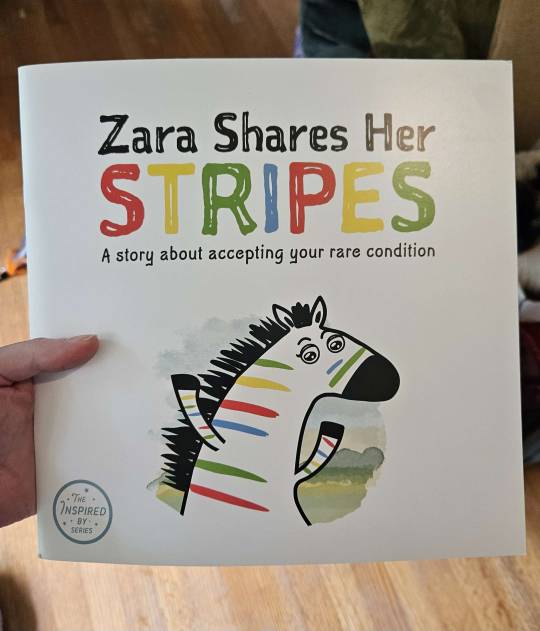
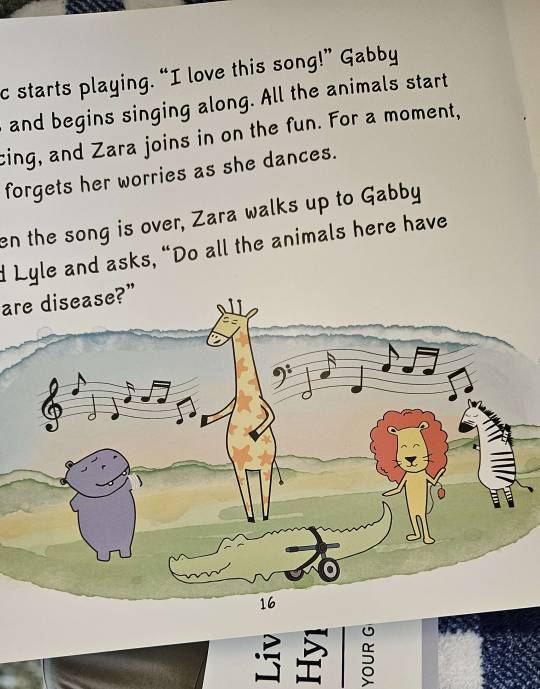
*Forgot the note I was going to add about this. The reason the FDA doesn't authorize Strensiq for adult-onset is probably because studies didn't show as dramatic an improvement for adults compared to kids. But I think that's stupid. For one thing the disease is rare so studies are always small and there aren't very many of them. For another, of course the improvement in kids is more dramatic, their disease is more severe. Japan is the only country that allows Strensiq for adult-onset, as far as I'm aware.
6 notes
·
View notes
Text
Marpu Foundation: Transforming the World Through Youth Power
Marpu, a Sanskrit word signifying ‘transformation’, is the heart of our foundation’s ethos. We believe in the extraordinary potential of youth to be catalysts for positive change. Our mission is to harness this energy through innovative, empathy-driven projects that contribute to the Sustainable Development Goals (SDGs).
Our long-term vision is a world characterized by equity, compassion, and sustainability – a world built collaboratively through partnerships. To achieve this, we focus on four key areas:
Environmental Sustainability
We are committed to protecting our planet for future generations. Our environmental initiatives focus on two critical areas:
Clean water and sanitation: We are working to provide access to clean water and improved sanitation through the implementation of biosand filters in rural communities. These filters are low-cost, sustainable solutions that can significantly impact public health.
Affordable and clean energy: We are promoting the adoption of renewable energy sources through the development of community microgrids. By providing access to affordable and clean energy, we aim to improve livelihoods and reduce reliance on fossil fuels.
Economic Development
Our economic development programs focus on creating opportunities for all, especially marginalized communities. We are working to reduce inequality and achieve zero hunger through the following initiatives:
Zero hunger: We are implementing blockchain-based distribution systems to ensure efficient and transparent delivery of food aid. This innovative approach helps to reduce food waste and improve food security.
Reduced inequality: We are empowering women and youth through entrepreneurship and skill development programs. By providing access to financial resources and training, we are helping to create a more equitable society.
Social Development
We believe that every individual has the right to a decent standard of living, access to quality education, and equal opportunities. Our social development programs focus on:
Quality education: We are working to improve access to quality education, especially for girls and young women. Our programs include building schools, providing teacher training, and implementing early childhood development initiatives.
Gender equality: We are committed to promoting gender equality and empowering women. Our initiatives include women’s empowerment programs, leadership training, and advocacy for women’s rights.
Partnerships
Collaboration is essential to achieving our goals. We believe that by working together, we can create a greater impact. Our partnership programs focus on building strong relationships with government agencies, businesses, NGOs, and community-based organizations. We also actively involve young people as partners in our work, recognizing their invaluable contributions.
By focusing on these four key areas, Marpu Foundation is working towards a future where young people are at the forefront of creating a sustainable and equitable world. We invite you to join us on this transformative journey.
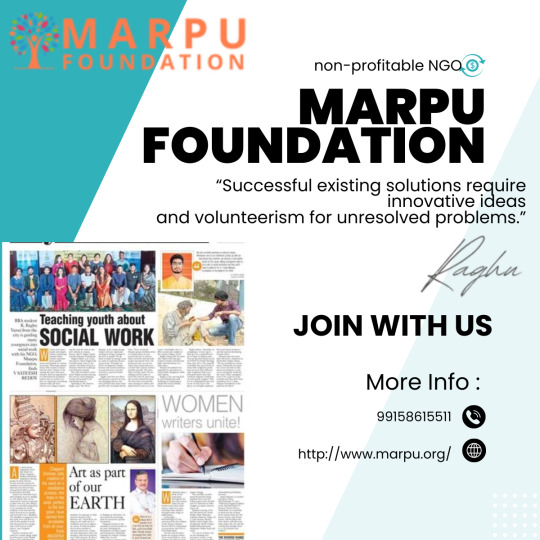
#MarpuFoundation#YouthPower#Sustainability#OpenVolunteering#Partnerships#SDGs#Transformation#CollectiveImpact
2 notes
·
View notes
Text
high empathy autistics: left out and underdiagnosed because many professionals thought all autistics have low empathy
high empathy autistics: earn their rightful place in the autism community after lots of advocacy
autism community, including low empathy autistics: we can have high empathy or low empathy! not all autistics are low empathy but we need solidarity
(some) high empathy autistics: actually no, low empathy autism isn’t real, we actually all have high empathy! we’re just misunderstood teehee! Also empathy equals being a good person and if you don’t have empathy you’re an abuser. (HEAVY sarcasm of course)
low empathy autistics, who have literally done nothing wrong and are now being pushed out of the community: wtf?
[this is a VENT POST, don’t start discourse. Either use that empathy you love to boast about and put yourself in my position, or just scroll away]
8 notes
·
View notes
Text
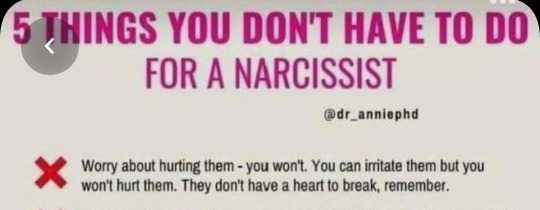
this is the perfect evidence that empathy doesn't equal to caring about other's well-being.
this post literally offers to don't care about someone's feelings because they have a certain disorder (npd). and directly claims that people with this disorder don't have feelings, which is factually incorrect and is worded in dehumanizing manner.
it seems like people with any level of empathy are able to be ignorant and cruel towards others, they just come with different excuses to do so.
#examples of empathy ableism#low empathy advocacy#no empathy advocacy#low empathy#no empathy#apathy#npd safe#npd#ableism#sanism
340 notes
·
View notes
Text
Is Bipolar Disorder Serious?
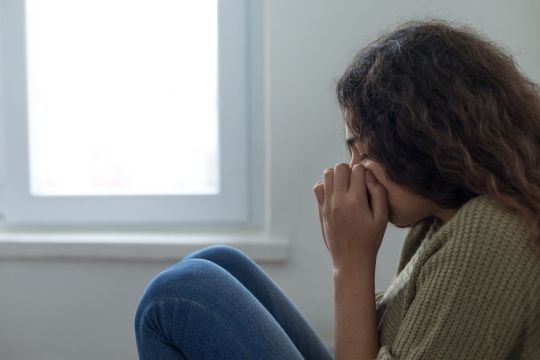
Bipolar disorder, often misunderstood and stigmatized, is a mental health condition characterized by extreme mood swings. It affects millions worldwide, leading to significant challenges in personal and professional lives.
Understanding Bipolar Disorder
Bipolar Disorder Types:
There are different types of bipolar disorder, including Bipolar I and Bipolar II. Understanding these distinctions is crucial for effective management.
Causes and Triggers:
While the exact cause remains unknown, genetic factors, brain structure, and chemical imbalances play a role. Identifying triggers, such as stress or sleep disruptions, is vital.
Signs and Symptoms
Manic Episodes:
During manic episodes, individuals may experience heightened energy, impulsivity, and euphoria. Recognizing these signs is essential for early intervention.
Depressive Episodes:
Depressive episodes manifest as prolonged periods of sadness, low energy, and feelings of hopelessness. Recognizing these symptoms is crucial for timely support.
Diagnosis and Misconceptions
Challenges in Diagnosis:
Bipolar disorder often goes undiagnosed or misdiagnosed, leading to delayed treatment. Addressing the challenges in accurate diagnosis is crucial.
Common Myths:
Dispelling myths surrounding bipolar disorder is essential to reduce stigma and promote understanding. Educating the public can contribute to better support systems.
Impact on Daily Life
Bipolar Disorder and Relationships:
Managing relationships with a bipolar partner requires empathy and communication. Understanding the impact on loved ones is vital.
Employment and Social Life:
Bipolar disorder can affect one's professional and social life. Exploring strategies to maintain a healthy balance is essential.
Treatment Options
Medications:
Medications, including mood stabilizers and antipsychotics, are commonly prescribed. Understanding the benefits and potential side effects is crucial.
Therapy and Counseling:
Psychotherapy, such as cognitive-behavioral therapy, plays a vital role in managing bipolar disorder. Exploring various therapeutic approaches is beneficial.
Coping Strategies
Lifestyle Changes:
Adopting a healthy lifestyle, including regular exercise and adequate sleep, can complement medical treatment.
Support Systems:
Building a strong support network is essential for individuals with bipolar disorder. Friends, family, and support groups contribute to overall well-being.
Bipolar Disorder and Other Conditions
Co-occurring Disorders:
Understanding the connection between bipolar disorder and other mental health conditions is crucial for comprehensive treatment.
Comorbidity:
Addressing comorbidities, such as substance abuse or anxiety disorders, is essential for effective management.
Managing Medication
Adherence:
Sticking to prescribed medication regimens is vital for stability. Discussing concerns with healthcare providers can address issues related to adherence.
Side Effects:
Awareness of potential side effects and open communication with healthcare providers are essential aspects of managing medication.
Living with Bipolar Disorder
Success Stories:
Sharing success stories of individuals managing bipolar disorder inspires hope and promotes a positive outlook.
Advocacy and Awareness:
Advocacy efforts contribute to reducing stigma and increasing awareness about bipolar disorder in the community.
Support for Families and Friends
Understanding and Communication:
Educating families and friends about bipolar disorder fosters understanding and strengthens support systems.
Seeking Professional Help:
Encouraging families to seek professional guidance helps them navigate the challenges of supporting a loved one with bipolar disorder.
Impact on Children
Genetic Factors:
Understanding the genetic factors involved in bipolar disorder can aid in early intervention for children at risk.
Support for Families:
Providing resources and support for families with children affected by bipolar disorder is crucial for their well-being.
Myths vs. Facts
Dispelling Common Misconceptions:
Addressing misconceptions, such as viewing bipolar disorder as a character flaw, promotes a more empathetic and informed society.
Seeking Professional Help
Importance of Early Intervention:
Emphasizing the significance of early intervention in managing bipolar disorder and improving overall outcomes.
Finding the Right Specialist:
Seeking a qualified mental health professional ensures accurate diagnosis and effective treatment.
Conclusion
In conclusion, while bipolar disorder poses significant challenges, it is a manageable condition with the right support and treatment. Understanding the nuances of this disorder and fostering empathy within society can contribute to a more inclusive and supportive environment.
2 notes
·
View notes
Text
unpopular opinion that I don't have the time to write up a more nuanced take on atm but I think the Level system for labeling autism is good and useful because 99% of online autistics I encounter have no fucking clue what life is like for levels 2+3 autistics let alone empathy or space for listening to them and supporting them meaningfully
if your autism advocacy starts with "I wasn't diagnosed until I was 25 because masking" and ends with "autistic people are extremely capable of anything and everything allistics can do" then I really don't care what you have to say on autism
listen to the profoundly impacted. center their experiences in your discussions. do some damn research. spend time volunteering with local organizations. use your position as a likely able-bodied verbal adult to advocate. autism advocacy is disability advocacy because autism is a disability.
this isn't a post about self diagnosed TikTok autists but it isn't not a post about that either fwiw. I've got room for nuance in my opinion but not the time or energy to fully discuss it here. I'm not anti self DX, or anti online community resources. I am against the overwhelming amount of online information, advocacy, awareness, and support being directed at self DX/late DX level 1 autistics.
while I'm here, you're not "going nonverbal" or "sometimes nonverbal". you have selective mutism, or low expressive language. you might need AAC supports during those times, but nonverbal has a specific meaning in speech therapy contexts. words have meaning!
I don't like the terminology of Asperger's/aspie, especially since it boiled down to autists who are useful to the Nazis vs not, but it is good to look into posts critiquing "aspie supremacy". aspie supremacy is stuff like insisting you're a Good Autist because your meltdowns are private and nonviolent, or that autism is just a different way of looking at the world.
the reality is autism is a Spectrum of Disorders, a lot that we don't know anything about! It's like saying "autoimmune disease" like do you have cataracts or are you going into multiple organ failure? you see what I mean.
this post is getting long but I've been thinking about writing a fucking essay on the topic ever since I saw someone say "after I was diagnosed at 22 I could really look back and see all the times I was being r*******d as a kid" [censorship mine]. like can you fucking listen to yourself speak for once
3 notes
·
View notes
Text
Multiple things can be true at once
Autism is not in and of itself an empathy related disorder, and low empathy is not part of the diagnostic criteria of autism
A lot of autistic people have low empathy because of co morbid disorders like alexithymia
Having low empathy does not make you a bad person, in fact statistically most abusers do not have any sort of empathy disorder.
Saying Autism causes low empathy is incorrect, but it’s not ableist. Unless you are implying that low empathy is a bad thing but then the issue is ableism towards empathy disorders
It is important to distinguish Autism as separate from empathy disorders in order to properly accommodate both Autism and empathy disorders. What comes across as low empathy in Autistics who don’t have low empathy, is a communication deficit. To say this is low empathy is to leave the actual problem unresolved
Separate does not, and should not, mean superior. All disabled people should be respected and treated kindly
Addressing common comorbidities is an important part of Autism advocacy. A lot of people in our community have low empathy and we need to show solidarity with them not only as fellow autistics but as part of a larger disability acceptance movement.
Autistic spaces are getting so much more hostile towards people with low empathy, and it sucks
There was a subreddit I really liked, people were chill, and then there was a sudden influx of people making posts like ‘Autistic people have empathy! Saying we don’t makes us seem like monsters! Thats not a symptom!’ And people making posts explaining that no, actually, some of us do have low empathy got attacked and told they were wrong or ableist? And it sucks, because its just so hard to find a place to exist where you can be seen as not evil? I don’t know, it just hurts a lot to be told that
66K notes
·
View notes
Text
Thompson Law Revealed The Best Personal Injury Attorney Los Angeles Depends On
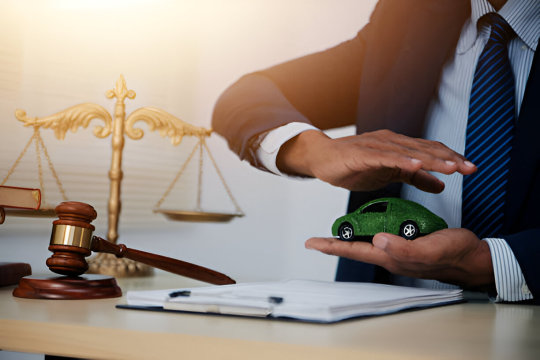
Personal injury law shapes the futures of individuals and families after life-changing accidents. If you need the best personal injury attorney Los Angeles, CA, you’re probably facing medical bills, lost income, and the overwhelming task of rebuilding your life. You want not just legal representation, but a trusted advocate who will listen, guide, and fight for your best interests from start to finish.
This guide takes a close look at Thompson Law, a leading personal injury law firm serving El Segundo and all of Los Angeles County. You’ll learn who they are, how their process works, why their results stand out, and what sets them apart for accident victims searching for justice.
Expect in-depth answers to your questions, expert insights on what to look for in a car accident lawyer, and practical next steps to protect your rights. If you’re seeking the best pedestrian accident lawyer El Segundo, California, or need the best car accident lawyer Los Angeles, CA, this comprehensive blog is your roadmap.
What Really Makes the Best Personal Injury Attorney Los Angeles CA Stand Out
Not all lawyers are created equal. Choosing the right firm can change the outcome of your case and your life. Here’s what you need to know about Thompson Law’s expertise and what to look for when searching for the best legal help in Los Angeles, CA.
Credentials and Track Record
Experience Matters: Thompson Law has decades of experience with personal injury litigation in California. Their seasoned team has represented clients in thousands of claims ranging from auto accidents to complex workplace injuries.
Proven Results: Over the years, Thompson Law has secured millions in settlements and verdicts for clients injured due to others’ negligence. Their record includes high-profile car accident, slip-and-fall, and catastrophic injury cases.
Reputation and Client-Centered Approach
Client Testimonials: Consistent five-star client reviews highlight the firm’s attention, empathy, and hard-hitting advocacy. Many clients mention feeling heard, supported, and updated at every stage.
Transparent Communication: The attorneys at Thompson Law are approachable, responsive, and honest about case prospects, timelines, and outcomes. No jargon, hidden fees, or surprises.
Availability and Accessibility
24/7 Support: Accidents don’t follow business hours. Thompson Law’s team is available day and night, both in English and Spanish, to address urgent questions and provide immediate guidance.
No Upfront Fees: Consultations are always free, and you pay nothing unless your case is won. This contingency fee model reflects their commitment to client well-being.
Why Thompson Law Is the Best Car Accident Lawyer Los Angeles CA Relies On
Car accidents are among the most common personal injury claims in Los Angeles. The city’s heavy traffic, complex intersections, and high-speed highways create thousands of collisions each year. When your well being is on the line, you need the best car accident lawyer Los Angeles, CA, offers.
Comprehensive Case Handling
Thorough Investigations: Thompson Law employs accident reconstruction experts, reviews police reports, and gathers crucial witness statements to build strong cases.
Insurance Negotiation: Their attorneys handle all correspondence with insurance companies to prevent low ball offers and ensure clients are not pressured into unfair settlements.
Litigation Power: If negotiations stall, they have the resources and courtroom experience to take your case to trial and fight aggressively for every dollar you deserve.
Common Car Accident Injuries and Damages
Whiplash and soft-tissue injuries
Spinal cord and traumatic brain injuries
Broken bones and internal injuries
Property damage and loss of income
Thompson Law’s deep familiarity with California statutes means clients often recoup damages for:
Medical expenses, present and future
Lost wages and diminished earning potential
Pain and suffering
Loss of transportation or quality of life
Recent Case Example
A recent Los Angeles client involved in a rear-end collision received over $1 million in compensation after Thompson Law disputed the insurance company’s initial offer. Their attorneys uncovered additional medical complications and demonstrated the true extent of lost future income, resulting in a far higher settlement.

Pedestrian Accident Lawyer El Segundo California Residents Trust
Pedestrian accidents are shockingly common in El Segundo and greater Los Angeles. Distracted drivers, poor crosswalk visibility, and speeding all contribute to tragic collisions that often result in severe, lifelong injuries.
Thompson Law’s Pedestrian Accident Expertise
Local Focus: Their deep understanding of El Segundo streets and accident hotspots enables a tailored legal strategy.
Medical Advocacy: Thompson Law collaborates with medical experts to document injuries and project long-term care needs.
Community Commitment: They advocate for pedestrian safety reforms and partner with local nonprofits to support accident prevention.
How They Maximize Compensation
Pedestrian accident victims may not only be entitled to medical expenses, but also future rehabilitative care, home modifications (if needed), and compensation for loss of enjoyment of life.
If you or a loved one was involved in a pedestrian accident lawyer El Segundo, California, or Los Angeles County, contacting an attorney quickly can make all the difference. Preserving evidence, speaking to witnesses before memories fade, and meeting legal deadlines are all handled by the team at Thompson Law, so you can focus on your recovery.
What Makes Thompson Law Unique Among Los Angeles Law Firms
There is no shortage of attorneys in Los Angeles. What consistently sets Thompson Law apart?
All-Inclusive Services for Accident Victims
Spanish-Language Consultations: Thompson Law is proud to offer bilingual legal services, ensuring that clients feel comfortable and respected at every stage.
Home and Hospital Visits: For seriously injured clients unable to travel, their legal team will come to you at no additional charge.
Technology-Driven Updates: Clients receive secure digital document sharing and real-time status updates, making communication fast and transparent.
Local Expertise With National Reach
While focused on Los Angeles and El Segundo, Thompson Law brings resources, experts, and a network of support from across California and the country. They are equipped to handle both simple and highly complex cases.
How the Claim Process Works at Thompson Law
Hiring the right lawyer should feel empowering, not intimidating. Here’s what to expect when working with Thompson Law.
Step One Free Consultation
You’ll speak directly with a qualified attorney, not a junior staff member. Expect a relaxed conversation focused on your needs—not a high-pressure sales pitch.
Step Two Immediate Investigation
Once you decide to move forward, Thompson Law’s team quickly gathers essential evidence, whether from accident scenes, police reports, medical records, or video surveillance.
Step Three Strategic Negotiation
Experienced negotiators handle all talks with insurance carriers and at-fault parties. Their mission is always maximizing your financial recovery and handling costs you may not realize you’re entitled to.
Step Four Courtroom Success
Most cases settle without trial, but if needed, Thompson Law’s attorneys have the courtroom skills and determination to take on even the largest insurance companies in California.
Frequently Asked Questions About Personal Injury Cases in Los Angeles
When should I contact a personal injury attorney?
If you’ve been injured due to another’s negligence—in a car accident, slip and fall, or as a pedestrian in El Segundo, California—reach out as soon as possible. Immediate legal advice can preserve your rights and prevent crucial mistakes.
How much does it cost to hire the best personal injury attorney in Los Angeles, CA?
Thompson Law operates on a contingency basis. You pay nothing upfront, and fees are collected only if your case is resolved in your favor.
What kind of compensation can I expect?
While every case is unique, compensation may include medical bills, lost wages, pain and suffering, and, in severe cases, punitive damages.
How long do I have to file a claim in California?
California’s statute of limitations for personal injury is generally two years from the date of the incident, with some exceptions. Quick action is always advised.

Preventing Personal Injury Accidents in El Segundo and Los Angeles
While Thompson Law stands ready to help victims after an accident, they are also committed to education and prevention for the community.
Support for local safe-driving and pedestrian awareness campaigns
Free resources on accident prevention and legal rights
Regular blog updates on changes in California personal injury law
Take Control of Your Recovery With Los Angeles’ Trusted Law Firm
When an accident upends your life, choosing the right legal partner can make all the difference. Thompson Law has built a reputation as the best personal injury attorney Los Angeles, CA, residents trust for results, support, and integrity. Their expertise spans car accidents, pedestrian injuries, and many other cases where victims deserve a fierce advocate.
If you, a friend, or a loved one needs help navigating the aftermath of an injury in Los Angeles or El Segundo, don’t wait. Schedule your free consultation now, or call Thompson Law’s 24/7 hotline for immediate support.
Share your experiences, ask questions in the comments, or spread the word to someone in need. Your path to recovery starts today.
Contact us
Thompson Law (310) 878-9450 909 N Pacific Coast Hwy, Suite 10-01, El Segundo, CA https://1800lionlaw.com/ca/los-angeles/personal-injury-lawyers/
Google map: https://maps.app.goo.gl/vZFYHTGbzxZqAt5dA
1 note
·
View note
Text
How Hahn March Supports Disabled Veterans and Medicaid Patients with Trusted Home Care
Taking care of disabled veterans and Medicaid patients takes more than medical expertise—it takes compassion, respect, and consistency. Hahn March, a dedicated leader in the home care industry, exemplifies this mission by providing high-quality, personalized support services to some of the most vulnerable individuals in our society. Through innovative programs, a skilled care team, and a commitment to dignity, Hahn March has become a trusted name in home care.
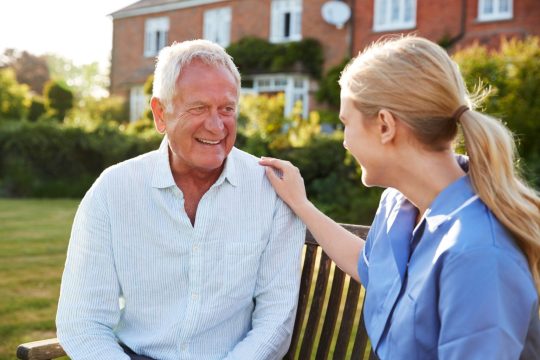
A Mission-Based Strategy for Home Care
Hahn March operates with a clear and compassionate mission: to ensure that every client receives reliable and respectful care in the comfort of their own home. Understanding that veterans and Medicaid patients face unique challenges, the organization has built its services around inclusivity, accessibility, and affordability. Hahn March Indiana knows that health care is not a one-size-fits-all situation, and their individualized care plans show it.
Specialized Care for Disabled Veterans
Disabled veterans often deal with physical injuries, emotional trauma, and complex medical needs. Hahn March intervenes with specialized care specifically for this group. Her care providers are trained to understand and address the physical limitations and mental health challenges that many veterans experience.
Services include:
Personal care assistance with personal care activities
Transportation to and from VA medical appointments
Medication management and nursing care
Emotional support and companionship
Coordination with VA benefits and case managers
By collaborating with veterans' organizations and the Department of Veterans Affairs, Hahn March ensures that veterans receive all the benefits and care they are entitled to.
Empowering Medicaid Patients Through Consistent Care
Medicaid patients themselves tend to experience systemic impediments to healthcare access, such as limited access to providers and variable quality of care. Hahn March addresses this head-on by offering dependable and high-quality home care that Medicaid patients can count on.
For Medicaid recipients, Hahn March provides:
Skilled nursing services and home health aides
Long-term care coordination
In-home physical and occupational therapy
24/7 care support for those with chronic conditions
By maintaining open communication with Medicaid caseworkers and family members, Hahn March fosters a collaborative approach that enhances patient outcomes and quality of life.
A Team That Treats Patients Like Family
Behind Hahn March's success is its empathetic care team. Every nurse, home health aide, and caregiver is carefully selected and trained not only for their skills but also for their empathy. The organization conducts ongoing training programs to ensure caregivers are well-versed in the latest healthcare protocols and culturally competent practices.
Innovation and Accountability in Home Care
Hahn March uses technology and ongoing feedback to ensure a high level of service. Through digital care logs, real-time updates for families, and regular care evaluations, the company holds itself accountable to both patients and healthcare partners.
Community Impact and Ongoing Advocacy
Beyond delivering care, Hahn March plays an active role in advocating for improved healthcare policies for veterans and Medicaid patients. The organization is a consistent supporter of healthcare summits, veteran support programs, and Medicaid advisory boards. Her advocacy helps ensure that the voices of disabled and low-income patients are heard at local and state levels.
Conclusion: A Partner in Healing and Independence
Hahn March is a shining example of dependability in home care, particularly for Medicaid patients and disabled veterans. Through specialized care, empathetic providers, and a mission to restore dignity and independence, Hahn March proves that trusted home care can be transformative.
0 notes
Text
Sometimes the most powerful thing you can do is protect your peace.
This started as a 5 a.m. reflection—coffee reheated, hoodie on, mind humming like a radio loop.
I’ve been through cancer, trauma, ADHD, and raising a son while learning to advocate for myself in spaces that weren’t built for me.
I’ve sat in “healing circles” that felt more like pyramids. Been in rooms where silence was used to control instead of comfort.
But here’s what I know now: 💛 Peace is powerful. ✊ Power should never come at peace’s expense.
I wrote about this in my latest piece, “Peace, Power & Low Taper Fades.” It’s a love letter to healing, advocacy, and the quiet revolutions we carry within us.

#ADHDMom#ChronicIllnessWarrior#OstomyLife#MentalHealthMatters#HealingJourney#EmpathyOverSympathy#PatientAdvocate#PowerAndPeace#SingleMomStrong#TraumaRecovery#SafeSpaces#NeurodivergentVoices#fromsurvivaltorevival#thehealingchapter
0 notes